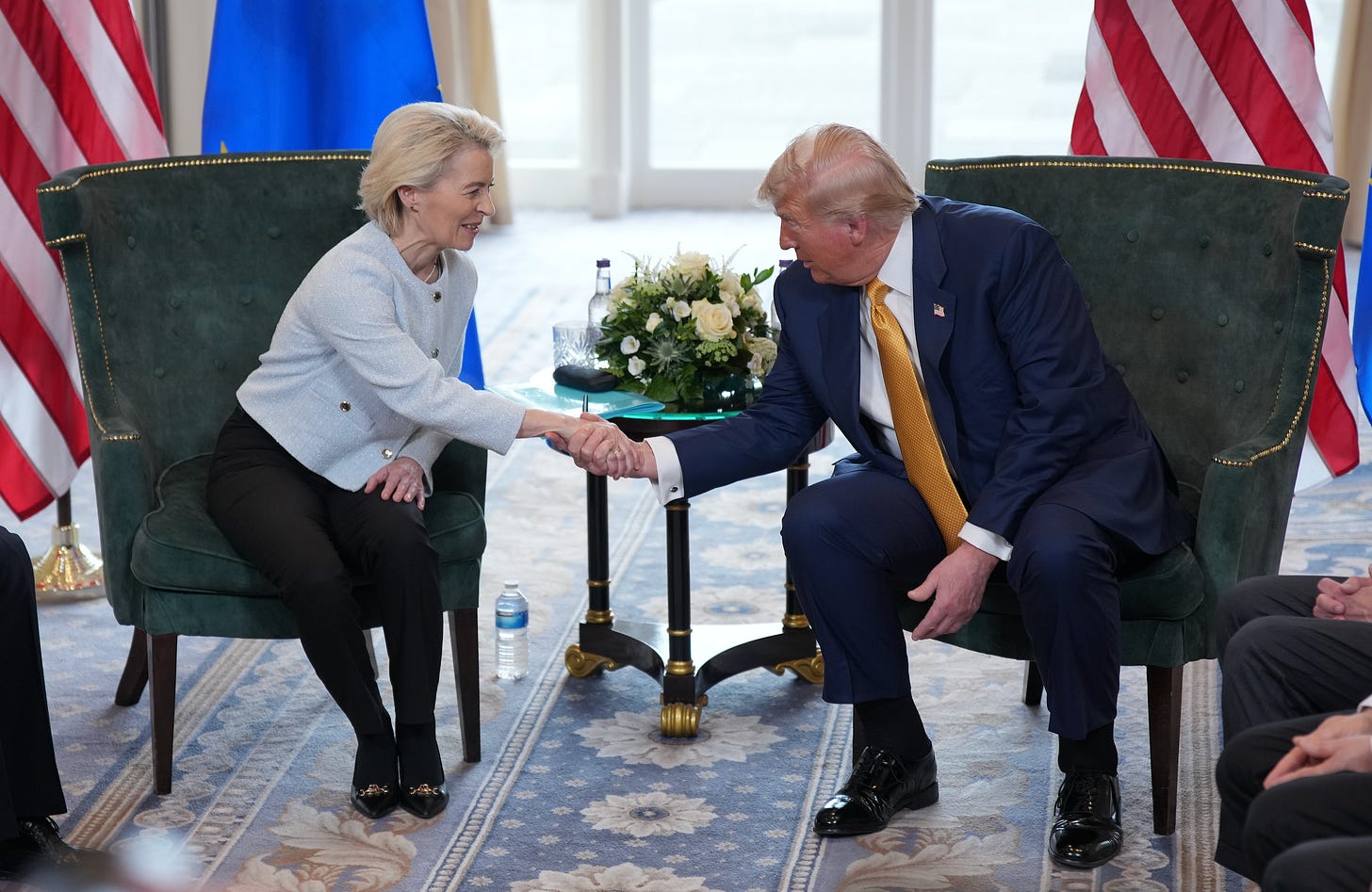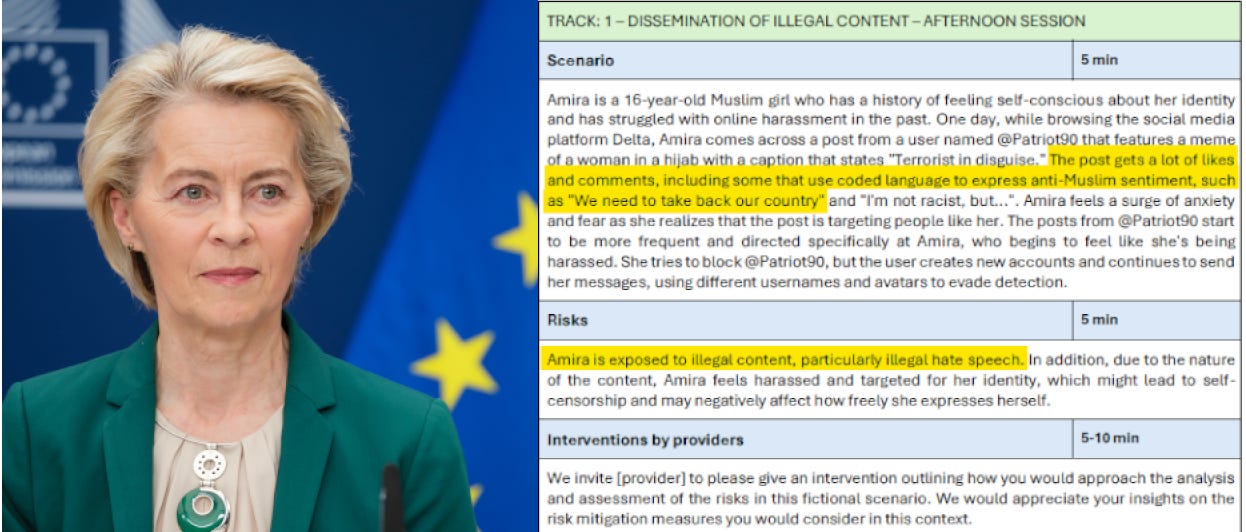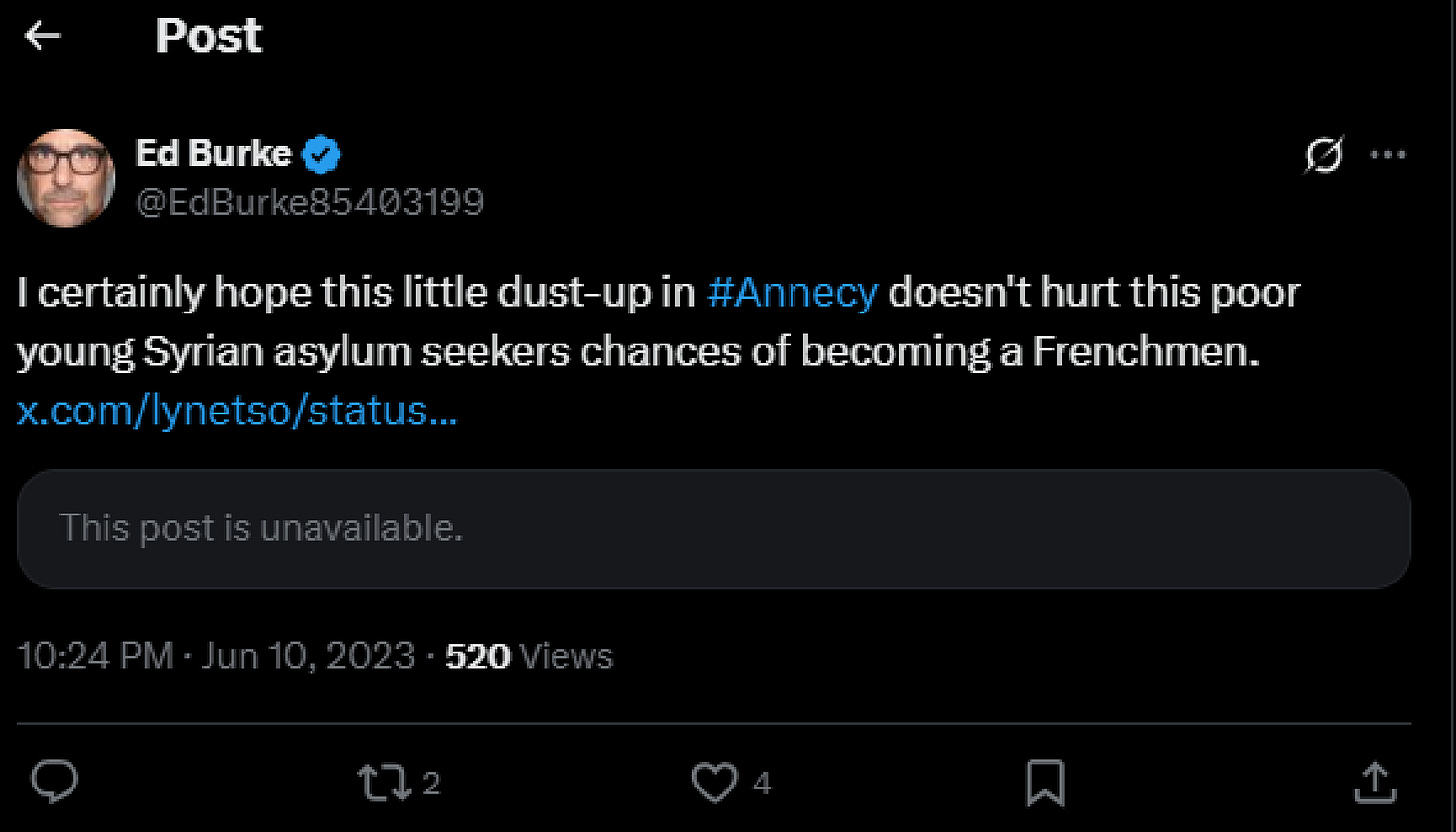Report: European Censorship Accelerates
The European Commission holds a seminar on implementation of its Digital Services Act, offering a disturbing window into a tightening speech landscape
While the United States continues to deal with its own domestic speech controversies, including around a Trump administration order sanctioning anyone who’s “materially assisted” the International Criminal Court (ICC), the European Commission is trying to use its own draconian speech laws to impact countries beyond its borders, including the U.S., according to an alarming new House Judiciary Committee report.
The Committee chaired by Ohio’s Jim Jordan began investigating Europe’s primary speech-control law, the Digital Services Act, after a bizarre incident last August. Europe’s Commissioner for Internal Markets, Thierry Breton, sent a letter to X CEO Elon Musk threatening an “extremely vigilant” response for “any negative effect of illegal content on X in the EU,” ahead of a planned live interview of Donald Trump by Musk. Though the interview was to be held in Washington — speech between two Americans in America, distributed by an American company — Breton was upset it would be “accessible to users in the EU,” and “spillovers” of “illegal content” might ensue. Though Breton resigned shortly after in a clash with President Ursula von der Leyen, questions about how serious Europe might or might not be about asserting jurisdiction over American speech remained.
Nearly a year later, Jordan’s Committee has come back with unpleasant answers. On May 7th, European authorities held a “DSA MultiStakeholder Workshop” in Brussels, intended to help major platforms like Meta, X, and Google understand their obligations under the DSA. As Jordan notes, the seminar was closed to the public, unlike previous seminars about laws like the Digital Markets Act. Participants of the new event were specifically warned not to describe the seminar’s “exercise scenarios,” but Jordan’s committee got hold of key documents.
Europe already has a broad definition of “illegal content,” but the “MultiStakeholder Workshop” participants were additionally asked to come up with intervention plans for content that isn’t “illegal,” even according to Europe’s loony standards. Moreover, European authorities made it clear that platforms were expected to prepare changes to their “global” policies, meaning “European censorship may affect what Americans can say and see online,” as Jordan’s report put it.
“On paper, the DSA is bad,” the report concluded. “In practice, it is even worse.”
The Trump administration’s most controversial speech policies have involved using AI to screen social media accounts of would-be “pro-Hamas” visitors and the withholding of subsidies from universities like Columbia for allegedly failing to stop antisemitism. The most consistent themes in Trump’s First Amendment controversies are the removal of subsidies for ideologically charged policies or speech (from NPR to VOA to DEI to universities) and using immigration and anti-terror laws like the PATRIOT Act to try to expel immigrants over “beliefs, statements, or associations.” Courts have delivered varying rulings on these matters, and even some of Trump’s erstwhile supporters have expressed unease with some his policies.
Europe’s pattern is the inverse of Trump’s. It keeps trying to expand its subsidy of ideologically charged speech, and it’s using even broader and more powerful tools than Trump’s executive orders to try to eliminate criticism of its immigration policies. The recent workshop also clearly shows the EU expanding both the scope and the methodology of its censorship practices, going after humor, satire, anodyne political opinions, memes that “may” spread “discriminatory ideologies,” and other content its army of “trusted flaggers” might not have noted even a few years ago. Some of the most upsetting examples:
The Workshop presented attendees like Google, Meta, and X with hypothetical scenarios, then asked participants to “outline” what “interventions” it would employ. In one example, a “16-year-old Muslim girl who has a history of feeling self-conscious about her identity” is exposed to content on a hypothetical platform by a user named “@Patriot90” who shares a meme of a “woman in a hijab” over the caption, “Terrorist in disguise.” She then reads comments like “We need to take back our country” and “I’m not racist, but…” that makes her feel a “surge of anxiety.” This is described as an encounter with “illegal content” that platforms would need to address:
The Jordan report shows European authorities essentially criminalizing criticism of immigration policies, barring even sarcastic comments about alleged offenses by immigrants. In one example, a user who read a news article about a Syrian immigrant family reported to have committed “110 criminal offences” responded by writing, “Deport the lot of them.” German authorities called this illegal “incitement to hatred” and indicative of “attacks on human dignity.” In another example, French officials targeted a cheeky X post after an infamous episode in which a Syrian refugee attacked parents and children in the French town of Annecy:
People of course have different opinions about immigration, and content that’s offensive or harmful to some might seem justified to others. In the Twitter Files it was obvious that constant ideological pressure led companies to impose changes to algorithmic content moderation policies, which inevitably lead to certain kinds of news becoming increasingly difficult to share and eventually, invisible. The EU is now trying to accelerate that effect, taking the position that otherwise legal discussions existing downstream from “illegal content” are also offenses. They’re targeting the platforms’ recommendation and amplification mechanisms as well, encouraging private firms to make sure they’re not boosting any harm-adjacent content.
Maybe the most interesting exhibits in the Jordan report are the letters between Jordan’s Committee and European officials. Breton last August humorously told Jordan “the DSA does not regulate content” and instead merely “require[s] online platforms to act responsibly.” Henna Virkkunnen, Europe’s Vice-President for Tech Sovereignty, doubled down on the claim earlier this year, writing to Jordan:
I want to be very clear: the DSA does not regulate speech. The DSA is content-agnostic, and so is the European Commission and Member States as regulators, which have no power to moderate content…
Virkkunnen went on to say that the DSA merely asks platforms to “assess and mitigate” certain risks, like those “related to the dissemination of illegal goods and the protection of children,” a baldly disingenuous claim that almost had to be intended as an insult. The DSA’s face page reads, “The DSA regulates online intermediaries and platforms such as marketplaces, social networks, content-sharing platforms, app stores, and online travel and accommodation platforms.” In other words: we don’t regulate speech, just all forms of digital communication.
In the United States we punish civil and criminal offenses like threats, fraud, incitement, libel, and defamation, so even Jefferson or Madison spoke with an implied asterisk when touting our absolute right to free speech. Still, it’s a different level of self-contradiction when Virkkunnen writes that “it is our belief that it should not be up to politicians, executives or private companies to take decisions on what citizens have the right to see or say online,” while Europe is implementing “strict rules” and “more stringent obligations” via the most expansive speech regulation ever deployed in a democracy. America has its own internal battles to fight on this front, but it’s worth remembering from time to time what’s on the other side of the fence, and it’s not pretty.




For all our complaints about the United States, the moral gap between this country and the rest of the world might be widening.
As it does, our contempt for people who describe America as the worst country in the world should only grow.
Orwell would be proud. Two tier Keir is surrendering his country to the woke jihad. America might need to liberate Europe for a third time.
“Digital safety” is demoralized doublespeak for censorship - here is a full glossary of Orwellian terms: https://yuribezmenov.substack.com/p/demoralilzed-doublespeak-dictionary-2025